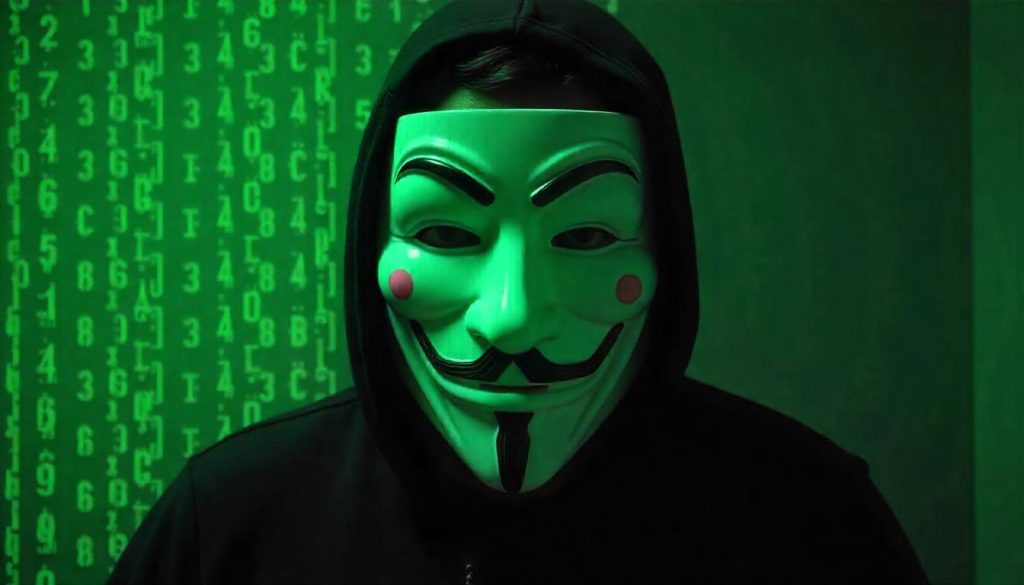In the digital age, the hacktivist group Anonymous has been one of the most talked-about names in the world of cyberactivism. Known for their Guy Fawkes masks, decentralized structure, and a mission to fight corruption, censorship, and injustice, Anonymous has carried out numerous high-profile hacks since the early 2000s. But as with all powerful tools, hacking can be a double-edged sword. This brings us to a compelling question: Has Anonymous ever caused more harm than good with a hack? Let’s explore this idea in a human-centered, balanced, and easy-to-understand way.

Understanding Anonymous
Before diving into the impact, it’s important to understand what Anonymous actually is. Anonymous is not a single person or an organized group with a leader. Instead, it’s a loosely connected network of individuals across the globe who collaborate online for different causes. These causes are usually tied to anti-corruption, anti-censorship, or social justice movements. They often use hacking and digital protests, known as DDoS attacks (Distributed Denial of Service), leaks, or defacements of websites, to make a statement.
They are not always coordinated or agreed upon by everyone using the “Anonymous” name, which means actions can vary wildly in intent and impact.
The Good: Speaking for the Voiceless
Anonymous has undeniably been a force for good in several cases.
1. Arab Spring Support
During the 2011 Arab Spring, Anonymous took down several government websites in Egypt, Tunisia, and Libya. These countries were suppressing internet access and censoring protests. Anonymous helped protesters by providing tools to bypass censorship and communicate safely. Many activists credited them with helping the revolution gain global attention.
2. Operation Darknet
In 2011, they launched Operation Darknet, which exposed websites hosting child pornography. Anonymous targeted and took down several hidden services operating through the Tor network, even leaking information about some users. This action was widely praised for helping clean up parts of the dark web.
3. George Floyd Protests
In 2020, following the murder of George Floyd, Anonymous resurfaced with messages calling for justice and police reform. They targeted the Minneapolis Police Department’s website, allegedly knocking it offline, and reignited global conversations about racial injustice. In these instances, Anonymous acted like a digital Robin Hood—helping the oppressed, exposing corruption, and empowering citizens. But were all their hacks this noble?
The Harm: When Hacking Crosses a Line
Unfortunately, not all of Anonymous’s operations have been harmless. Sometimes, their hacks have had unintended consequences—or worse, targeted the wrong people entirely.
1. Operation Payback (2010)
Anonymous launched this operation in retaliation against organizations that opposed WikiLeaks, such as PayPal, Visa, and MasterCard. They took down their websites using DDoS attacks. While this sent a strong political message, it also affected millions of users who couldn’t access their accounts or complete transactions. Innocent customers became collateral damage.
2. Mistaken Identity in Doxing
Doxing—exposing someone’s personal information online—is a tactic sometimes used by Anonymous to shame wrongdoers. But mistakes happen. In 2013, during the search for the assailant in the Steubenville, Ohio rape case, Anonymous accused the wrong person. Though their intentions were to seek justice, the false accusation led to harassment and damage to someone’s life who had nothing to do with the crime.
3. Project Chanology (Scientology)
While their 2008 protest against the Church of Scientology gained global media attention, critics argued that Anonymous crossed the line into harassment. Besides exposing the organization’s questionable practices, they also overwhelmed Scientology websites and even prank-called churches—blurring the lines between protest and bullying.
4. Hacktivism without Boundaries
Because Anonymous has no official leadership or vetting process, anyone can launch an operation in its name. This means that sometimes politically motivated or even malicious hacks are done under the Anonymous banner. This lack of control has led to reckless leaks, including sensitive government data and individual records that compromised people’s safety.
When the Line Between Good and Harm Is Blurry
One of the biggest challenges in evaluating Anonymous is the nature of hacking itself. By definition, hacking often involves breaking the law—even if the reason behind it is moral or ethical. The question isn’t always “Is it right?” but “Is the outcome worth the risk?” For example, when Anonymous leaks documents to expose a corrupt politician, it may bring justice. But what if that data includes sensitive information about unrelated individuals? Or, what if it puts lives at risk, especially in volatile political environments? The line between whistleblowing and recklessness is thin—and sometimes Anonymous walks both sides.
The Human Cost of Hacktivism
Behind every “operation” is a human story. When Anonymous hacks a system, it’s not just servers and websites that are affected. Real people—employees, users, families—can feel the impact.
-
Data leaks can result in identity theft, online harassment, or real-world threats.
-
Website outages can disrupt businesses, medical systems, or nonprofits.
-
Wrongful accusations can ruin lives, especially when the internet acts as judge and jury.
What’s even more complicated is that these actions are done anonymously. So there’s no easy way to hold anyone accountable if something goes wrong.
Conclusion: A Force for Good, With Consequences
So, has Anonymous ever caused more harm than good with a hack? The answer isn’t black and white. In many cases, they’ve been a powerful voice for justice, acting when governments or corporations failed to. They’ve helped start revolutions, uncovered crimes, and challenged authority. But in doing so, they’ve also made mistakes—some of which have hurt innocent people or disrupted the lives of many. At its core, Anonymous reflects both the potential and the danger of decentralized power. When used responsibly, it can amplify justice. When misused or misunderstood, it can sow chaos. Ultimately, the legacy of Anonymous is one of high-impact activism with real-world risks. Like fire, it can warm or burn—and it’s up to humanity to decide how to handle it.